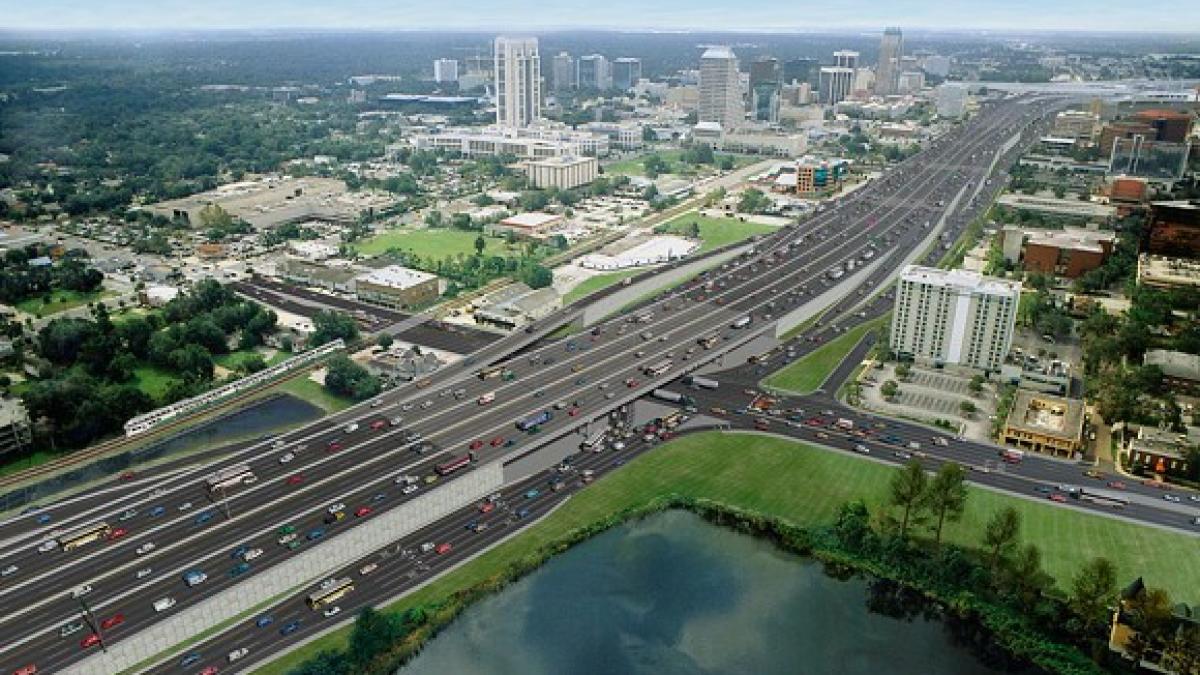Soto Votes to Pass $1.5 Trillion Infrastructure Bill

WASHINGTON, D.C. – This week, Congressman Darren Soto voted to pass H.R. 2, the Moving Forward Act, House Democrats' sweeping legislation to invest more than $1.5 trillion in modern, sustainable infrastructure while creating millions of good-paying jobs, combatting the climate crisis and addressing disparities in communities across Central Florida and throughout the country.
"For years, Central Floridians have called for action to rebuild our crumbling roads and bridges, unreliable transit and rail networks," said Rep. Soto. "This week, I proudly joined my colleagues to pass the Moving Forward Act to give Floridian families the urgently-needed infrastructure investments they deserve. As our nation continues to confront the coronavirus crisis, this legislation will create millions of good-paying jobs and equip our nation with the 21st-century infrastructure critical to growing our economy and helping our communities prosper for decades to come. Passage of this bold legislation also means more funding to help complete the I-4 Expansion quickly and safely. It's time to move the sunshine state and our nation forward!"
Among the many far-reaching provisions of the Moving Forward Act:
- The INVEST in America Act, a nearly $500 billion investment to rebuild and reimagine the nation's transportation infrastructure by fixing our crumbling roads and bridges, improving safety, reducing gridlock and putting the U.S. on a path toward zero emissions from the transportation sector by cutting carbon pollution, investing in public transit and the national rail network, building out fueling infrastructure for low- and zero-emission vehicles and deploying technology and innovative materials. The INVEST in America Act is fueled by American workers and ingenuity thanks to strong Buy America provisions and labor protections. Under H.R. 2, Florida would receive $16,673,864,161 in highway and transit funding that could help complete the I-4 Expansion and fix the traffic in Central Florida.
- Directs the United States Geological Survey to focus on the short and long-term mechanisms that trigger sinkholes, including extreme storm events, prolonged droughts leading to shifts in water management practices, as well as ongoing aquifer depletion and other major changes in water use. The provision, which is based on Congressman Soto's Sinkhole Mapping Act of 2019, would also direct the Director of the USGS to establish and maintain a public website that displays maps that depict zones that are at greater risk of sinkhole formation and other relevant information critical for use by community planners and emergency managers. This will give community planners and first responders access to information on where sinkholes are likely to form.
- Invests in schools with the Reopen and Rebuild America's Schools Act, which funds $130 billion in school infrastructure targeted at high-poverty schools with facilities that endanger the health and safety of students and educators. This investment will help students get back to school and create more than 2 million jobs to help workers get back to work.
- Addresses structural challenges and upgrades child care facilities by leveraging a 5-year, $10 billion federal investment to generate additional state and private investments in making sure that child care settings are safe, appropriate and able to comply with current and future public health directives.
- Invests over $100 billion into our nation's affordable housing infrastructure to create or preserve 1.8 million affordable homes. These investments will help reduce housing inequality, create jobs and stimulate the broader economy, increase community and household resiliency in the face of natural disasters, improve hazardous living conditions and increase the environmental sustainability of our housing stock.
- Protects access to safe drinking water by investing over $25 billion in the Drinking Water State Revolving Fund and other programs to ensure all communities have clean drinking water and to help remove dangerous contaminants like PFAS from local water systems.
- Modernizes our energy infrastructure for a clean energy future by investing more than $70 billion to transform our electric grid to accommodate more renewable energy, expand renewable energy, strengthen existing infrastructure, help develop an electric vehicle charging network and support energy efficiency, weatherization and Smart Communities infrastructure.
- Delivers affordable high-speed broadband Internet access to all parts of the country by investing $100 billion to promote competition for broadband internet infrastructure in unserved and underserved communities, prioritizing those with persistent poverty. Gets children connected to remote learning, close broadband adoption and digital skills gaps and enhances payment support for low-income households and the recently unemployed.
- Modernizes the nation's health care infrastructure by investing $30 billion to upgrade hospitals to increase capacity and strengthen care, help community health centers respond to COVID-19 and future public health emergencies, improve clinical laboratory infrastructure, support the Indian Health Service‘s infrastructure and increase capacity for community-based care.
- Modernizes and strengthens the United States Postal Service by investing $25 billion to modernize postal infrastructure and operations, including a zero-emissions postal vehicle fleet, processing equipment and other goods.
- Promotes new renewable energy infrastructure by incentivizing the development of wind and solar on public lands and building a workforce for offshore wind.
- Promotes investments in our communities by spurring private investment through the tax code, through a revitalized Build America Bonds program, expansions of Private Activity Bonds and significant enhancements to the New Markets Tax Credit and the Rehabilitation Tax Credit.
A fact sheet on the Moving Forward Act is available here.
###
